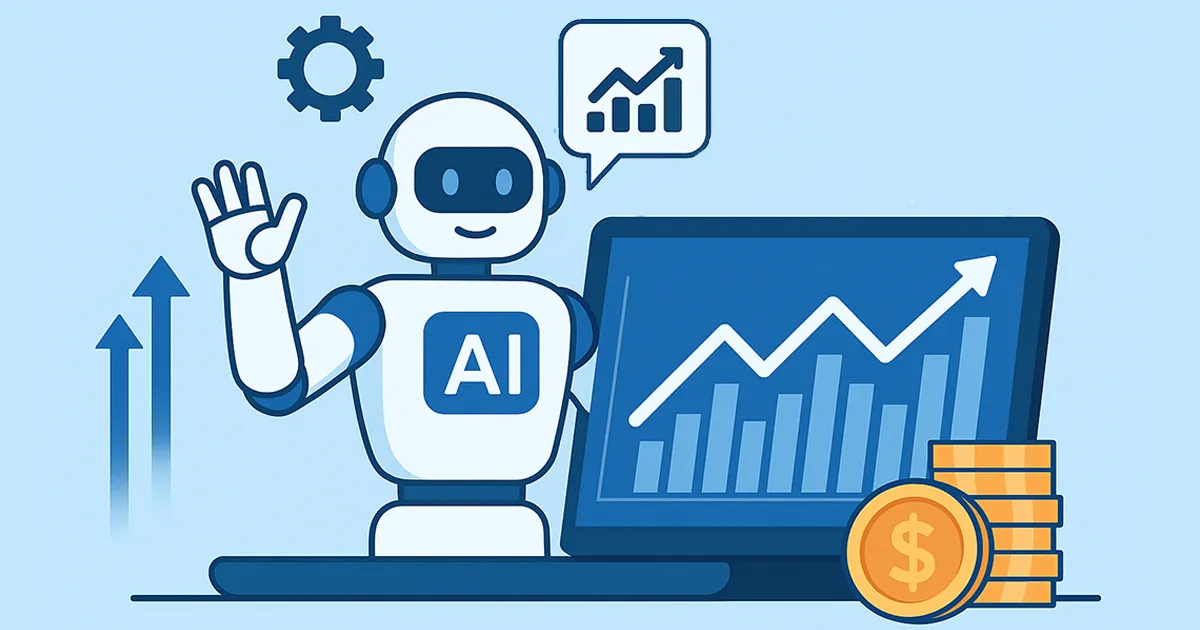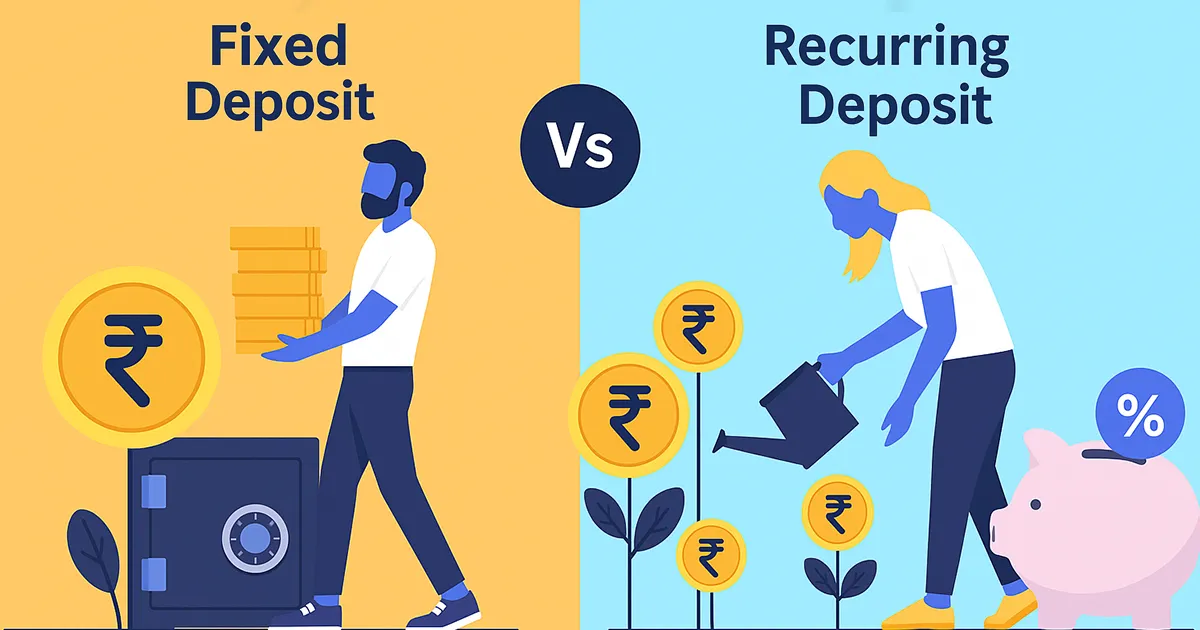
With all the buzz around artificial intelligence, many believe we are on the verge of automating wealth creation. AI is already reshaping industries—so why not the stock market? Algorithms now analyze charts, scan news headlines, and even read social media sentiment. But the real question is, can AI truly predict market movements, or is it just a smarter version of guesswork?
In this post, we’re going deep. We’ll explore what AI can realistically do in the world of trading, where it falls short, and whether trusting AI with your money is a wise move—or just another tech fantasy. If you’ve ever wondered whether AI can actually beat the market, or if it’s just marketing hype, this is for you.
Let’s separate the facts from the fiction and see where AI fits into your financial strategy.
1. Why Everyone's Talking AI in Trading?
2. How AI "Thinks": Can Machines Understand the Market?
3. What AI Gets Right: Speed, Volume & Patterns
4. Where AI Falls Short: Things It Cant't Accurately Predict
5. AI vs Human Judgement: Who Wins in Trading?
6. Can You Really Trust AI With Your Money? The Honest Truth
The stock market has always been about gaining an edge—finding that one strategy, tip, or tool that gives you just enough of an advantage to beat the average. And right now, AI is being marketed as the ultimate edge.
From Wall Street firms to solo traders in their bedrooms, everyone’s looking at AI as the next big thing in investing. Why? Because AI promises what every investor dreams of: faster decisions, deeper analysis, and emotion-free trading.
Here’s why AI has suddenly become the hot topic in the trading world:
But Here’s the Catch…
Just because AI is fast and powerful doesn’t automatically mean it’s accurate. The market is unpredictable, influenced by factors no algorithm can fully grasp—like human emotion, sudden events, and pure randomness.
So, while AI is changing the game, the question remains: Is it really winning?
Here’s the truth: AI doesn’t “think” like we do. It doesn’t get excited when a stock goes up or panic when it crashes. But that’s also what makes it so powerful—and yet limited.
So, how does AI actually make sense of the stock market? Let’s break it down.
AI Doesn’t Think. It Learns.
AI doesn’t have opinions. It doesn’t guess. Instead, it learns from data. This is called machine learning—a process where the AI looks at historical stock data, recognizes patterns, and uses those patterns to make predictions.
For example, if a stock usually drops after a certain news event, AI will remember that pattern and use it to predict a similar drop in the future.
But past patterns don’t always repeat perfectly.
AI can’t predict the future—but it can analyze tons of current and past data, such as:
By analyzing all this, AI builds a model of what might happen next.
Here’s where things get tricky.
The stock market isn’t just numbers—it’s driven by people. Fear, greed, hope, rumors… these emotions drive prices up and down in ways that aren’t always logical. AI can read the news or analyze a tweet, but can it really understand the mood of millions of traders?
Not fully.
AI can track sentiment—whether people are feeling positive or negative—but context still matters. A joke on Twitter might cause panic. A serious news headline might be ignored. This is where human intuition often still beats AI.
Not exactly. AI doesn’t think—it calculates.
But it lacks the gut feeling, the ability to adapt instantly to something new, and the common sense that experienced traders bring.
Let’s break down exactly what AI excels at, and why it’s such a powerful tool in the right hands.
✅ 1. Speed That Humans Can’t Match
Let’s be honest—no human can read 1,000 news articles in a minute, or scan real-time stock data from multiple exchanges around the world instantly. AI can.
✅ 2. Handling Massive Data Volumes
AI depends on large amounts of data, and the stock market offers plenty to analyze.
While a human trader might analyze a few charts or read a handful of reports, AI systems digest:
The result? AI can see connections and spot patterns that humans would never catch—because we simply can’t handle that much information at once.
✅ 3. Recognizing Complex Patterns
This is where AI really shines. Using techniques like deep learning, AI can identify repeating patterns in market behavior that aren’t obvious.
Note: AI isn’t perfect, but in terms of pattern recognition, it’s often more accurate than human guesswork.
AI is powerful, but it’s not all-knowing. There are key areas where AI simply can’t compete with human judgment or market unpredictability.
Main Weaknesses of AI When It Comes to Predicting Market Movements:
❌ Unpredictable Events: AI struggles with sudden, unexpected events like political unrest, natural disasters, or surprise announcements. These events don’t follow historical patterns.
❌ Emotional Market Reactions: While AI can analyze sentiment, it can’t fully grasp the intensity or irrational nature of human emotions in the market, such as panic selling or FOMO buying.
❌ Overfitting Historical Data: AI often relies heavily on past data, assuming similar conditions will produce similar outcomes, which isn’t always true in real-world trading.
❌ Lack of Context: AI may analyze a news headline, but it might misinterpret sarcasm, humor, or complex context that affects how the market reacts.
❌ Dependency on Data Quality: Poor or incomplete data can lead AI to wrong conclusions. AI’s accuracy depends entirely on the quality of the data it receives.
❌ No Strategic Thinking: AI doesn’t have long-term investment goals. It focuses on short-term patterns and lacks the ability to plan strategically like an experienced investor.
AI and humans each have strengths in trading. Understanding when to rely on AI and when to trust human insight can make all the difference.
AI is a powerful tool, but it’s not a complete solution. The best approach often combines AI’s speed and data power with human intuition and strategy. Successful traders use AI to enhance their decision-making, not replace it entirely.
This is the big question—and it can’t be answered with a simple yes or no.
AI in finance is often marketed as the ultimate solution to beating the market. The truth is, while AI is powerful, relying on it completely for investment decisions can be risky if you don’t understand what it can—and can’t—do.
Let’s explore when you can trust AI, how to use it wisely, and why it’s best seen as a tool, not a replacement for smart investing.
You Can Trust AI For:
But You Should Be Cautious About:
The Best Approach?
Use AI as an assistant, not a decision-maker. Trust it to handle the technical work, but apply your judgment for strategy, risk, and timing.
Artificial Intelligence has changed the game in many industries—and trading is no exception. But while AI offers speed, data power, and advanced pattern recognition, it’s important to remember this: No technology, no matter how advanced, can replace the value of human insight, strategy, and adaptability. The market is not just numbers—it’s a reflection of human behavior, emotions, and events that can’t always be predicted by machines.
Should You Trust AI?
Yes—but with caution. Trust it to support you, not lead you. Use AI to save time, gain insights, and reduce bias—but let your experience and goals shape the decisions.
Share with like-minded people!
Lorem Ipsum is simply dumy text of the printing typesetting industry lorem.

Marketing your cloud kitchen isn't just about discounts. This guide shows you how to build brand visibility, attract loyal customers, and drive consistent growth even in competitive delivery markets.

Before your cloud kitchen starts taking orders, you need more than just great food. This complete legal and financial checklist helps you secure licenses, handle taxes, set up accounts, and avoid the most common mistakes that cause new kitchens to fail.

Starting a microgreens business? Don’t repeat the usual mistakes. This guide reveals why many fail—and what you can do differently to succeed.

Starting a microgreens business? Don’t repeat the usual mistakes. This guide reveals why many fail—and what you can do differently to succeed.

Starting a microgreens business? Don’t repeat the usual mistakes. This guide reveals why many fail—and what you can do differently to succeed.

Learn how to set up a profitable microgreens farming system from home. This guide covers equipment, growing tips, costs, and earning potential.